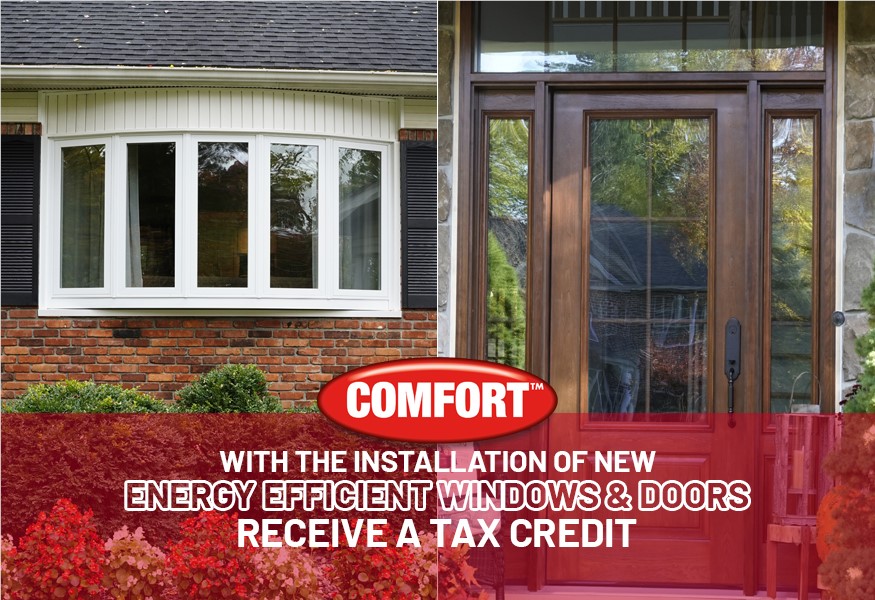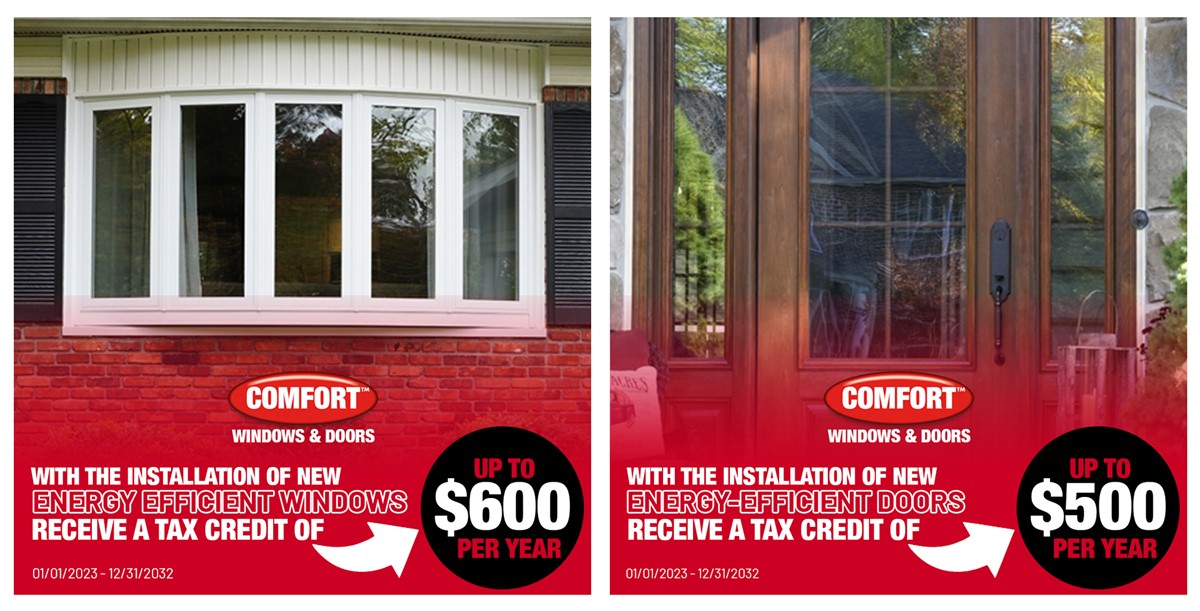The Inflation Reduction Act: Tax Credits On Energy Efficient Windows & Exterior Doors


The recently passed Inflation Reduction Act rewards households that take steps to improve home weatherization and the energy efficiency of their homes with the ability to reap more generous financial benefits through tax credits and rebates as well as through the additional long-term benefit of lowering electricity and heating bills. The act itself is a lengthy read so we took it upon ourselves here at Comfort to have reviewed it for you. We have condensed the information into the most important details relating to the tax credits available to homeowners in Upstate New York, focusing on making energy-efficient upgrades to their homes starting in 2023.
What Is The Energy Efficient Home Improvement Credit?
Formerly the Nonbusiness Energy Property Credit, the Energy Efficient Home Improvement Credit is part of the Inflation Reduction Act and covers a wide range of energy-efficiency home improvements. The information provided below focuses on how homeowners can benefit by using this tax credit towards upgrading to new energy-efficient windows and exterior doors. According to the Whitehouse.gov and the ENERGY STAR® website, the available tax credit is equal to 30% of what is spent on “Qualified Energy Efficiency Improvements”. Below are the annual caps that apply for each:
- Installed Energy Efficient Windows: Tax credit of $600 per taxpayer per year.
- Installed New Exterior Doors: Tax credit of $250 per door for up to 2 doors, for a total tax credit of $500 per taxpayer per year.
Here Are The Qualifications:
- The available tax credit is equal to 30% of what is spent on “Qualified Energy Efficiency Improvements”. This does not include the labor cost of installation.
- Replacement windows must meet ENERGY STAR® Most Efficient Certification Requirements.
- Exterior doors must meet applicable ENERGY STAR® requirements.
- This applies to improvements made from January 1, 2023 through December 31, 2032.
- Tax credits are non-refundable, making them available to homeowners with a minimum tax liability of $500.

Are There Any Restrictions On The Tax Credits Under the Inflation Reduction Act
All homeowners are eligible, but according to Evergreensmallbusiness.com there are a few general rules incorporated into the Act that you must follow. These have been put in place to ensure that these credits are being utilized by homeowners who are actively looking to improve their home’s energy efficiency. We have listed a few of the most important below…
- All home improvements must be installed in the United States.
- The homeowner must be the original user of the improvements and must be at your principal residence.
- Homeowners must reasonably expect to use the improvement for a minimum of 5 years.
As we mentioned above, the Inflation Reduction Act is quite a lengthy and complicated read. We have done our best to condense this down in a manner that includes only the most relevant information as it relates to the available tax credits to homeowners who are focused on upgrading to energy-efficient windows or having new exterior doors installed. If you are interested in learning more about the Act, more information is available online, including on the Whitehouse.gov and ENERGY STAR® websites. We also recommend consulting a tax professional.
Comfort Windows & Doors is here to answer any questions that you may have about choosing the products that qualify for these tax credits and the installation of these products. Just give us a call or fill out the form on this page and we’d be happy to set up a no-obligation, free in-home estimate to begin the process of making your home more energy efficient with new windows and doors.
Subscribe to Comfort Windows & Doors’s Blog







